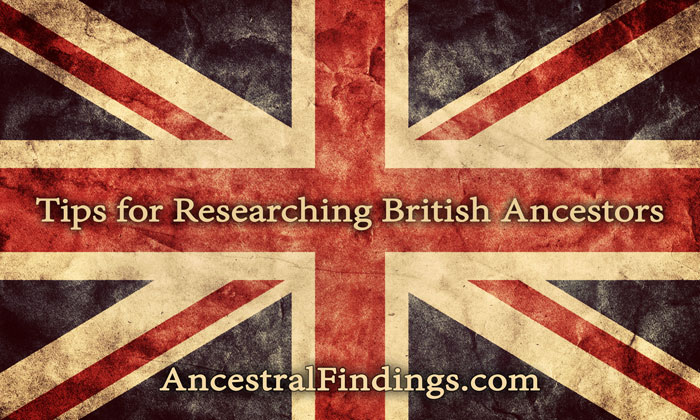Locating seemingly lost families and individual ancestors is an ongoing chore for most genealogists. You simply cannot do family history for very long before encountering your first “lost” branch on the family tree. Most of the time, these lost branches can be found pretty quickly with a little more in-depth, creative searching. Other times, however, the people you seek are nowhere to be found, no matter where you search for them and what methods you use. That is why there are so many articles and pieces of advice online on how to dig deeper and find your missing ancestors.
There can never be too many tips in this regard. Even the best tips may not work for every researcher. So, the more tips on finding missing ancestors, the better, because the next one you read may be the one that helps you finally break down that brick wall and find your missing family. There are new techniques being developed and written about all the time. Some people come up with their own methods that work for them and publish them. Other tips come from the personal storehouse of professional genealogists.
Here, to help you get those straggling, hidden ancestors out in the open, is an important searching tip you may not have heard of before, that can produce miraculous results in uncovering lost ancestors for genealogists. Maybe it will work for you, too.
One of the reasons you may not be finding your ancestors is because they were misindexed. This means they are, in fact, in the records, just not where you would expect them to be, or under the names or spellings, you would imagine. Misindexing is actually a huge issue in the genealogical research community. Yet, it is one that many genealogists do not even consider when working on breaking down or getting around their brick walls. To do away with the misindexing problem and find your missing ancestors, you first need to understand how they came to be misindexed in the first place.
Indexing has been being done since at least the 1200 A.D’s when an index of the Bible was produced that employed five hundred monks to create it. Before the age of word processors that could easily scan documents and produce accurate indexes on demand, people had to do it by hand. This often meant going through books and writing down the information to be indexed in another book (usually alphabetically, but not always), then compiling the indexing information in some semblance of order, often on note cards, on cut up pieces of paper, or in notebooks. Needless to say, this “by hand” method resulted in many indexing mistakes.
Indexing in this manner can produce a lot of errors due to simple human nature. The indexing person missed information that needed to be in the index, or they did not recognize two different spellings of the same name as the same name. They may have put wrong page numbers next to names, or indicated wrong volume numbers, for indexes of multi-volume collections. With all of these possibilities for mistakes, it is no wonder you cannot find your ancestors. You would have to read the entire book and not miss a thing or go through the whole record collection yourself (again, missing nothing) to find the family or person you seek.
Also frustrating for the genealogist is the lack of an index. You have probably come across some old books, such as town and county histories, memoirs, and even government record collections, that did not have indexes. If these sources are large, then reading through them all looking for one name or a family name can be a daunting task. How much genealogical information has been overlooked for lack of an index? How many people have the answers to their missing ancestors right there in unindexed books and record collections? Probably quite a few. With an accurate index, these missing people could easily be found and presented to the world once more.
So, what do you do when you suspect your ancestors may have been misindexed? There are a few different strategies for finding them.
1) Check All of the Spelling Variants
If the source you are using has an index, and you believe your ancestors should be in there, but you haven’t found them, search the index for all possible name variants. First letters, first vowels, and the letter H anywhere in the name are common causes of misspellings. Think about how the name sounds phonetically, and come up with some plausible alternate spellings for it, then look in the index for those.
2) Search by Only the First Name
This only works if you are using an electronic index, such as the one you would find online. It can be highly effective, though. The surname may have been so misspelled that you simply cannot locate it (or if you did, you didn’t recognize it as one that could belong to your ancestors). If this is true, then try searching by first name only. If you know the area your ancestors lived, and their approximate age at the time your particular record source was compiled, you can often find them by using their first name, place of birth, and age. This technique has worked for me, personally, numerous times, revealing hidden ancestors in the records who I would never have located otherwise.
3) Consider Spaces When You Search
Names that start with Mc, Mac, or O’ are usually spelled as all one word. Sometimes, though, indexers include a space between those beginnings and the rest of the surname, which can move their proper location in an index. Check on the spellings of these names both with and without a space, and you may find them.
If nothing else, you can always read the entire book or record collection, if you are sure your ancestors should be in there. It will take time, but ultimately, it is worth it to bring a lost family or ancestor out of the mists of time and into the genealogy world.




